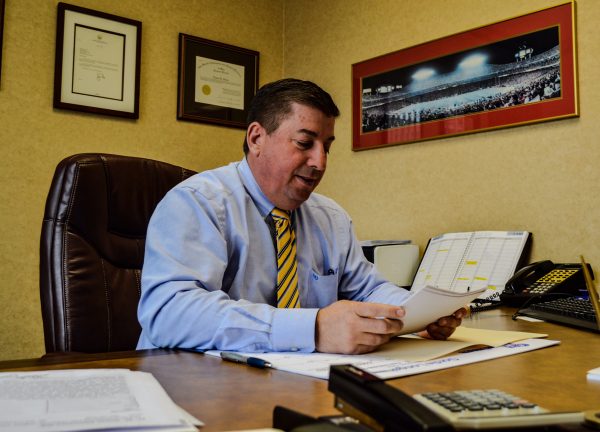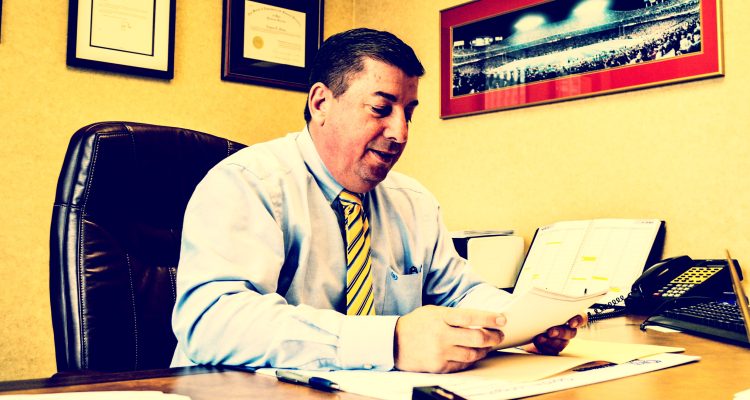He’s a Fahey, and you know his name. You’re familiar with it because he and several of his family members have chosen to serve in roles in Wheeling and Ohio County.
Gene Fahey is 51 years old, and he works two jobs most people do not want. For the past 30 years he has worked at Altmeyer Funeral Home in his native neighborhood of East Wheeling, directly across the street from his alma mater, Wheeling Central Catholic High School. Fahey, one of seven children, graduated from high school in 1981 and then from West Liberty University in 1986. He went to college believing he wanted to be an educator, but after working part time at Altmeyer’s, he chose to further his education by attending the Pittsburgh School of Mortuary Science.
He meets daily with the distraught, and he greets the grieving and attempts to console them with compassion, and Fahey does this because he’s very good at it and because it matters to most people.
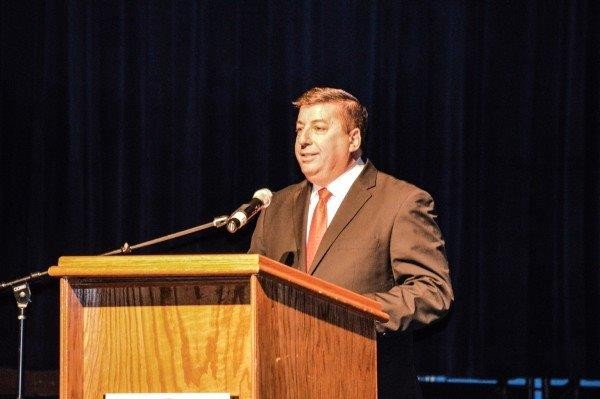
His second job is representing Ward 6 on Wheeling’s City Council, and at the time he won his first elected position, the Friendly City was struggling. The downtown was dirty and decaying; his funeral home was busier than local maternity wards; governmental can-kicking was common; and the Capitol Theatre was closed and the corporate America owner possessed no plans to update and renovate it.
And at that time in 2008, it was common to hear the same complaint: “There’s nothing to do in Wheeling.” Over and over and over and over again. The negativity and the level of apathy were most discouraging, but Fahey insisted on following in his father’s path to municipal government. Jack Fahey was initially elected to city council in 1972, and then in 1975 he became the Friendly City’s mayor.
Whether or not Gene will attempt to continue in those fatherly footsteps is a decision he says he has yet to make. In 2016, Mayor Andy McKenzie’s tenure will reach term limits, and that means Fahey, who also has been the city’s vice mayor the past seven years, will make a choice.
Does he run for mayor?
Does he instead run for re-election in Ward 6?
Or does he choose to end his political career?
Novotney: The Fahey name is a very well-known name in Wheeling. How has life been living with that last name?
Fahey: I know there’s a lot of people who recognize the name, and a lot of people think we have a really big family, but there’s really not that many of us. The reason why so many people know the name is because so many members of my family have been community oriented.
So many of my family members have taken active roles in the community, and that’s why people recognize the name. It was interesting when I was a kid because when I was 9 years old, my father was elected to city council. I didn’t really know what that meant, but I did understand at the time that it was a very difficult time in this city as far as city leadership and how the public viewed that leadership. It was a very unsettled time.
And then by 1975, when he became mayor of Wheeling, I really had to watch what I was doing because I realized there were a lot of eyes on me when I was a kid. If I was doing something wrong, it usually got back to my parents before I went home. You didn’t need Twitter, and you didn’t need Facebook back in those days. It was this mom was calling my mom, and that meant you dad was waiting for you when you got home.
Those were great days.
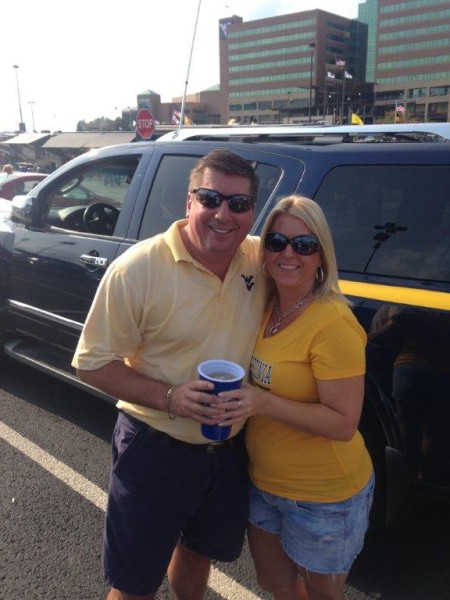
Novotney: How was life living as the son of the mayor?
Fahey: It was interesting living in that house; I can tell you that. As I watched him in his role of community service, I was amazed at some of the conversations that were going on back then about some very important things. I knew I couldn’t talk about those things, but what an education it was. I know that now.
But I don’t think any of my friends looked at me any differently because my dad was the mayor. I don’t think that mattered to a lot of them because of how old we were. We weren’t concerned with city government. We were worried about being kids and doing what we were doing.
Novotney: How did you make the decision to begin a career in the funeral home business?
Fahey: I actually went to college to become a teacher because that’s what I really thought I wanted to do for a living, but after I got a little bit of experience in the classroom, I decided that maybe that wasn’t for me. But I had started working here for the Altmeyers when I was in college, and that helped me find my path.
It was the late 1980s and I decided that it was something I really appreciated, and in 1989 I decided to go to mortuary school in Pittsburgh.
Novotney: It must be a difficult occupation.
Fahey: It is, but I am happiest when I am helping other people. We are all here on this earth to serve one another in some capacity or another, and I felt that I had the disposition one needs when trying to help another person at a very difficult time. It’s never easy, but it’s also a way of feeling good at the end of the day. You have the feeling that what you did today mattered, and I think there are so many jobs that people leave because they didn’t feel that what they were doing mattered.
That’s the kind of job I would think would be difficult to have. But by working here, I can help people get through one of the worst days of their lives. Every day it’s going to be someone different, and we never know who it’s going to be.
I have to give a lot of credit to our great staff. They do a tremendous job, and they are doing this for the right reasons, and that makes an enormous difference, in my opinion.
Novotney: The mortuary business seems to be changing with more people choosing cremation instead of burial.
Fahey: That’s true, but one time there was a slight trend when people weren’t having services. But that has changed, and now most people are having services because it’s so important for sharing the stories and grief.
Now that more people are choosing cremation as their ultimate means of disposition, they are also choosing to have those memorial services so they can get the correct closure that they need.
Novotney: You, too, have a long history of public service, one that started long before you made the decision to run for city council.
Fahey: I enjoy this community, and this community has a lot to offer. That’s why I have been very active with several organizations, and why I served as the county coroner for eight years.
We have a lot of civic organizations that I believe serve a real and important purpose, so I chose to get involved with those organizations. And I was also attracted to community service just like so many others in my family. I guess it’s in our DNA.
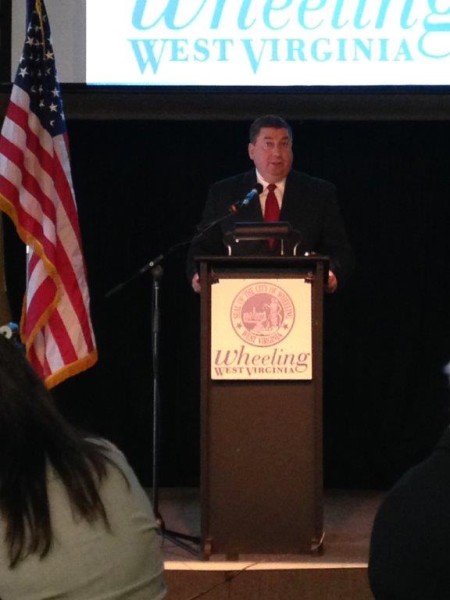
Novotney: With as much as you had going on in your life, why did you make the decision to run to represent Ward 6 on city council?
Fahey: I was living in Elm Grove and I knew I wanted to get more involved with city government. Barry Crow was the gentleman who represented Ward 6 at the time, and I did not have an issue with him at all.
It wasn’t really about winning or losing. It was about putting me out there, and if the citizens wanted me to serve, I was willing to serve. Plus, Barry had said he was going to run for mayor, but then he changed his mind.
It was probably the cleanest election you saw between two people because I didn’t have a problem with him, and he didn’t have a problem with me. In fact, I am still friends with Barry. I was just very fortunate to win.
Novotney: For the first time in your professional career, you spent a day watching vote totals. What was that experience like?
Fahey: It wasn’t too fun when I was losing for a while. I kept saying to myself, “It’s OK to lose. It’s OK to lose.”
But it was a great process, and then you begin becoming very close with some of the people that you serve with because you discover that you are very like-minded and that you have some of the same visions for the future of our city.
It was also a time when we had a very new council with four new members. I was new as were Don Atkinson, James Tiu, and Mayor McKenzie, so that meant there was a chance for a new direction. I think back when Mayor McKenzie said that if downtown Wheeling still looks like it did, that we had failed.
I still believe Wheeling is the hub of the Ohio Valley, and that downtown Wheeling is the focal point of the city. The appearance of that downtown is a barometer for many when they are forming their opinions about whether or not the community is improving or if it is failing. At that time, we had a Capitol Theatre that was closed. We had the 1100 block in downtown falling down upon itself. We had many other buildings decaying. We had people literally outside establishments at all hours of the night. We had car dealerships getting ready to close and move to the county.
It was not a pretty sight, and that was just downtown. There were a lot of issues that we walked into when we were first elected, and I think we have done pretty well. The one thing I will say is that this city council had a lot of guts because we refused to continue kicking that can down the road any longer. That had taken place far too many times about far too many things for far too long.
Novotney: I believe the progress that has been made has allowed the residents to buy in. Do you see it the same as I do?
Fahey: I do, and I believe the people have bought in because city council has been honest. I think people understand that we are trying to make common-sense decisions concerning very perplex issues. And I think the people realize that we are trying to do very positive things not just for today’s Wheeling, but for the future, too.
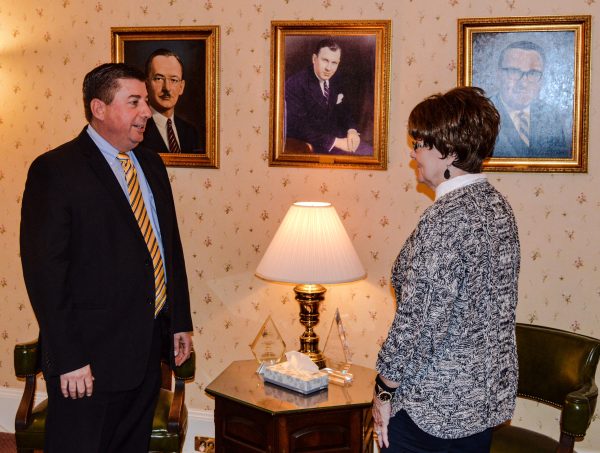
Novotney: What about the people who still haven’t bought in? And what about the people who insist on blaming Wheeling city government for the issues that are mandated by the state and not the municipality?
Fahey: That saying, “You can’t make everyone happy,” is a very true statement, and you find that out when you are serving your community in this capacity.
It can be frustrating, but I also think you have to look at individuals. There are a lot of people who are just bottled up with anger and they have to blame somebody. No matter what the issue is, it’s very easy to point your finger at a group like Wheeling city council. It’s very easy to do that.
Have we tried to make the right decisions? We have. It is hard, and probably one of the most difficult times concerned the new J.B. Chambers Recreation Park in East Wheeling. That was a very difficult time, but when I look at it today, it has gone past my wildest dreams. You can go there most nights and see a lot of activity on the field, and you’ll see a lot of people in East Wheeling who have never been to East Wheeling.
But our butts were hauled into court over that project. I went through depositions because there were some people who were trying to make it all about Wheeling Central Catholic High School. That was a runaway train, and I have no idea how it got started.
But what we are seeing today is exactly what we had in mind, and it’s a great example of staying the course.
Novotney: You have served seven years on city council thus far. Are you proud of your service? Do you plan to continue serving?
Fahey: I am proud of my service, and I plan to continue serving the citizens of Wheeling as long as they want me to. If it’s not the same role, it will be in another role somewhere. I plan on at staying in Wheeling. I’m not going anywhere.
To be able to be involved with something like the Capitol Theatre makes it all worth it. We were very close to losing the Capitol, and people don’t realize that. That project was almost killed by council members who could not see the big picture, but if that theatre had remained closed, nothing else in downtown Wheeling would have been possible.
But when the Capitol Theatre was saved, it allowed people to believe a comeback was possible. It made people realize that no one else was going to help us. We had to do it ourselves, and that’s how the theatre was saved. And now look at it, and look at the people who are now genuinely interested in moving downtown.
Things are happening in Wheeling that we haven’t seen for a long, long time, and there’s a lot more to do to continue improving our city. I hope to be involved with it for many years.
